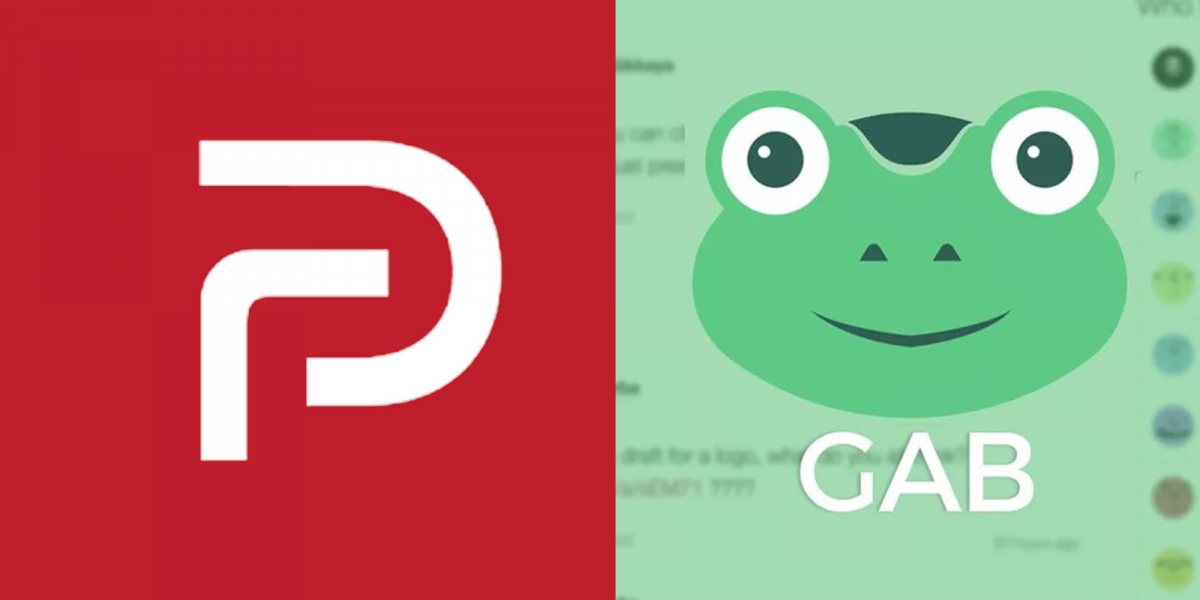Parler vs Gab – Which Twitter Alternative Should You Use?

Following the drastic uptick in online political censorship, new platforms have emerged to fill in the gaps left by establishment social media platforms. Such platforms include Parler and Gab – fast-growing Twitter replacement microblogging solutions.
These platforms have been labeled by much of the mainstream media as “Hotbeds of Hate”, often ignoring the fact that hate speech and extremist content exists on establishment platforms such as Facebook, Twitter and YouTube.
The Systematic Smear Campaign Against Gab
Gab, in particular has faced heavy mainstream media scrutiny after an anti-Semitic incident involving a gunman who posted to Gab, “I’m going in” about half an hour before opening fire on unsuspecting civilians in the Tree of Life synagogue in Pittsburgh, Pennsylvania. Andrew Torba, the CEO of Gab stated in an interview that the incident “disgusted” him and that such incitements of violence were not legal under the 1st amendment and hence will not be allowed on his platform. This however, did not dissuade Gab’s domain name provider GoDaddy from terminating their domain registration.
It is obvious that there is a double standard when it comes to violent extremists using alt-tech (alternative technology) platforms such as Gab as opposed to mainstream social media sites like Facebook, which suffered next to no media backlash after platforming the Christchurch shooting incident, where an anti-Muslim extremist opened fire and killed 51 attendees during a Facebook livestream.

“Conservative Inc.” And The Rise of Parler
Parler was founded by John Matze in September 2018 (about 2 years after Gab) initially as a platform for Saudi dissidents to express their opinions on the internet. It has since become a powerful juggernaut in the online conservative ecosystem, thanks to prominent conservative influencers including Dan Bongino and early adopters such as The Epoch Times.
Parler has had all pieces fall perfectly into place to “get big”, plus many mainstream conservatives’ support including Texas Senator Ted Cruz, who produced a 2 minute video in June encouraging his supporters to migrate to the platform. These promotions, in conjunction with Twitter’s “fact-checks” on president Trump’s mail-in ballot fraud Tweets, encouraged a huge number of users to migrate to Parler, accounting for the mid-2020 influx of users.

In early November, following the hotly contested US election, Parler once again saw a massive influx of users, launching the platform to the Alexa ranking of 1,835, ahead of about 3,800 sites in a matter of just 20 days. This was partly due to a coordinated #Twexit campaign initiated by conservative pundits, encouraging their supporters to boycott Twitter for perceived censorship against President Trump via “fact-checking.”

So what was Parler’s technique to outgrowing Gab, despite being 2 years younger? It turns out, it was the lack of finance restrictions. Parler was founded by John Matze and Rebekah Mercer, the daughter of hedge-fund tycoon Robert Mercer, a prominent conservative donor. This allowed Parler to scale their services with less budget restrictions. This is contrasted with Gab, which is funded solely by donations and subscriptions to their GabPRO plans via Bitcoin (since they have been banned by most payment processors). In addition, some conservative influencers have been reluctant to join Gab due to its association with the Pittsburgh shooting and its mascot, a “Gabby the frog”, closely resembling the alt-right mascot Pepe. Mainstream conservatives have been trying systematically to distance themselves from the alt-right due to perceived negative media connotations.
Gab CEO, Andrew Torba, in a August 5 YouTube segment, alleged Parler to be closely associated with “Conservative Inc”, a group of conservatives who espouse “libertarian” and “neoconservative” ideologies, he said. He claimed “Conservative Inc” were “gatekeepers who only wants to sell books.”
Pros and Cons of Parler & Gab
Gab Pros:
- Groups, like Facebook.
- Standardized terminology (likes, reposts, comments).
- Clean, customizable UI.
- View profiles without sign-up.
Gab Cons:
- Many features require GabPRO.
- Occasional maintenance.
- Slower, especially for non-American users.
- Less users.
- Lower engagement.
Parler Pros:
- Fast growing userbase.
- Bio summary in search.
- Higher engagement than Gab.
Parler Cons:
- ID required for verification.
- Financed by relatives of Cambridge Analytica executives.
- Cluttered UI.
- Requires sign-up to view profile.
Censorship of Obscene Materials
Parler and Gab both censor sexually and/or obscene materials since they do not regard obscene materials as free-speech. This has been widely criticized by many people (mostly left-wing journalists) and used as a reason not to join the platforms, despite the existence of countless websites designed to platform such content.
The Future of Alt-Tech
There’s quite a bright future for alternative technology platforms, provided their users remain engaged and not grift between alternative platforms and establishment platforms like Twitter and Facebook. Alt-tech Public Relations departments need to establish an effective damage control mechanism in case (God forbid) another extremist event happens with links to their platforms.
Diversity of viewpoints is also important to foster a welcoming environment for users to join. This includes more left-wing individuals joining Parler and Gab since a considerable amount of users desire to “own the libs” etc. Without divergent viewpoints, Gab and Parler may end up being sterile conservative echo-chambers and as a result lose active users.
Comments |0|
Tags: Alt-tech, Censorship, Conservatives, Gab, Mainstream Media, Parler, Social Media